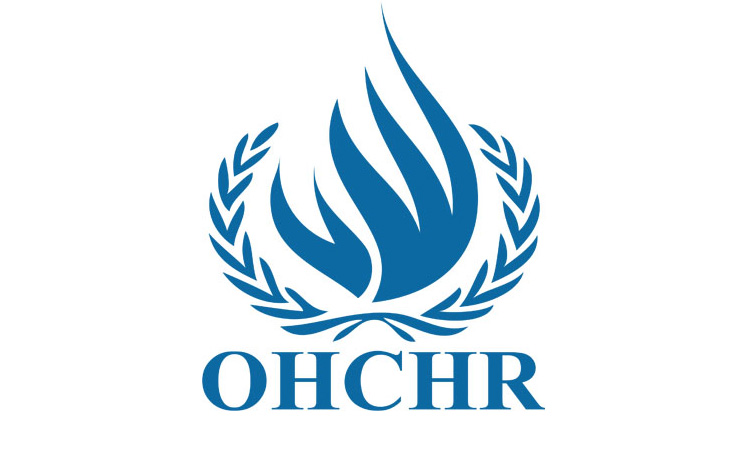News Flash
News Flash

DHAKA, Feb 12, 2025 (BSS) – UN rights organ OHCHR has suggested restructuring of Bangladesh’s security and policing systems and as part of the process disband the so-called elite anti-crime Rapid Action Battalion (RAB) as it released its fact finding report on violence over the July-August Uprising today.
“Disband the Rapid Action Battalion and return personnel not involved in serious violations to their home units,” said the report of the OHCHR or the Office of the United Nations High Commissioner for Human Rights.
The report urged the government to confine the functions of the Border Guards Bangladesh (BGB) to border control issues and the Directorate General of Forces Intelligence (DGFI) to military intelligence and limit and “delineate their resources and legal powers accordingly”.
The UN rights organ chief Volker Türk released the report at OHCHR headquarters in Geneva saying, rights violations were committed with the “knowledge, coordination and direction of the political leadership and senior security sector and intelligence officials".
"There are reasonable grounds to believe hundreds of extrajudicial killings, extensive arbitrary arrests and detentions, and torture, were carried out “as part of a strategy to suppress the protests," he said.
The report said the intelligence services including National Security Intelligence (NSI) and DGFI, specialised police branches like Counter Terrorism and Transnational Crime (CTTC) and detective units were engaged in widespread human rights violations to support the “violent suppression” of the protest movement.
The OHCHR said until a “screening mechanism” was established; Bangladesh should not nominate for UN peacekeeping operations any military or police personnel who served with RAB, DGFI or Dhaka Metropolitan Police’s (DMP) Detective Branch at any previous point.
It said any of the Border Guard Bangladesh (BGB) battalions deployed to the 2024 protests or previous instances of protests suppressed with use of force human rights violations should not as well be nominated for the UN blue helmet missions.
It also urged the government “demilitarize” control of para-police Ansar and VDP.
RAB, a special police organ that comprises personnel from army, navy, air force alongside regular police and Ansar, also previously accused by rights groups of massive human rights violations including extrajudicial killings.
The US State Department and Treasury Department in December 2021 slapped separate sanctions on RAB and seven of its present and former top or senior officials over allegations of serious human rights abuse.
The OHCHR report suggested amendments to bring the entire “Police Regulations of Bengal” in line with international human rights norms and standards particularly in terms of using force, “issue binding” directives prohibiting the use of firearms loaded with metal shot or other lethal ammunition to disperse crowds.
“Immediately cease equipping police and other security forces with metal shot ammunition for shotguns as a tool of public order management. Limit the issuance of armour-piercing ammunition to military and paramilitary forces,” the report read.
It also called for revising the security forces doctrines and training on public order management emphasizing less-lethal tactics and equipment and a de-escalatory, communicative approach that facilitates peaceful assembly and, where necessary, the use of less-lethal tactics, weapons and ammunition.
“Issue and enforce binding orders to the police to cease practices of mass charges and mass arrests, in particular where based on unsubstantiated and overly broad suspect lists. Where warranted, institute disciplinary and criminal justice proceedings for making false accusations or carrying out arbitrary arrests,” the report read.
The report simultaneously asked the government also to issue and enforces binding orders to ensure “full implementation of the Torture and Custodial Death (Prohibition) Act”, establish an independent torture prevention and detention monitoring programme and consider acceding to the Optional Protocol to the Convention against Torture.
“Reform police investigation techniques, orders, doctrines and training (and instead) emphasize forensics, non-coercive interviewing techniques and other methods that reduce reliance on coerced confessions,” it said.
The OHCHR suggested adoption of a fair transparent and merit-based police recruitment, promotions, transfer and removal process, led by a national police commission composed of government, opposition, and independent members, including from civil society.
The UN organ also recommended enactment of an ordinance to be endorsed as a parliamentary act or law in soonest possible time “ensuring that members of the Armed Forces can only be assigned to internal security tasks in the most exceptional circumstances for a limited duration”.
It said armed forces engagement in internal security duties should as well be subjected to parliamentary approval, while they should act under the command of civilian law enforcement authorities and with full transparency to the public regarding their tasks and rules of engagement.
“Engage in a comprehensive, independent and fair vetting process, with international and civil society input of all commissioned officer in police, intelligence, BGB, Ansar VDP and Armed Forces, and remove from their functions those involved in serious human rights violations or corrupt practices,” the report suggested.
The UN rights office called for establishing an effective and sufficiently independent human rights “screening mechanism” to ensure that no Bangladeshi personnel deployed to United Nations peace operations or other international missions is subject of credible allegations of international human rights, humanitarian or refugee law violations, or of any instance of sexual exploitation or abuse.